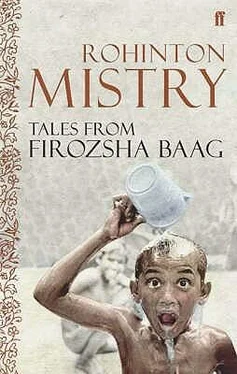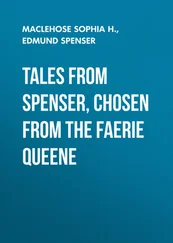Rohinton Mistry - Tales From Firozsha Baag
Здесь есть возможность читать онлайн «Rohinton Mistry - Tales From Firozsha Baag» весь текст электронной книги совершенно бесплатно (целиком полную версию без сокращений). В некоторых случаях можно слушать аудио, скачать через торрент в формате fb2 и присутствует краткое содержание. Год выпуска: 2006, Издательство: Faber & Faber, Жанр: Современная проза, на английском языке. Описание произведения, (предисловие) а так же отзывы посетителей доступны на портале библиотеки ЛибКат.
- Название:Tales From Firozsha Baag
- Автор:
- Издательство:Faber & Faber
- Жанр:
- Год:2006
- ISBN:нет данных
- Рейтинг книги:3 / 5. Голосов: 1
-
Избранное:Добавить в избранное
- Отзывы:
-
Ваша оценка:
- 60
- 1
- 2
- 3
- 4
- 5
Tales From Firozsha Baag: краткое содержание, описание и аннотация
Предлагаем к чтению аннотацию, описание, краткое содержание или предисловие (зависит от того, что написал сам автор книги «Tales From Firozsha Baag»). Если вы не нашли необходимую информацию о книге — напишите в комментариях, мы постараемся отыскать её.
Tales From Firozsha Baag — читать онлайн бесплатно полную книгу (весь текст) целиком
Ниже представлен текст книги, разбитый по страницам. Система сохранения места последней прочитанной страницы, позволяет с удобством читать онлайн бесплатно книгу «Tales From Firozsha Baag», без необходимости каждый раз заново искать на чём Вы остановились. Поставьте закладку, и сможете в любой момент перейти на страницу, на которой закончили чтение.
Интервал:
Закладка:
In a few seconds the lamp was doused, snuffed out. The afterglow of the wick persisted; then it, too, was gone. The room was in full darkness.
Daulat sat in the armchair. The first round, at least, was definitely hers.
The Collectors
I
When Dr. Burjor Mody was transferred from Mysore to assume the principalship of the Bombay Veterinary College, he moved into Firozsha Baag with his wife and son Pesi. They occupied the vacant flat on the third floor of C Block, next to the Bulsara family.
Dr. Mody did not know it then, but he would be seeing a lot of Jehangir, the Bulsara boy; the boy who sat silent and brooding, every evening, watching the others at play, and called chaarikhao by them — quite unfairly, since he never tattled or told tales — (Dr. Mody would call him, affectionately, the observer of C Block). And Dr. Mody did not know this, either, at the time of moving, that Jehangir Bulsara’s visits at ten A.M. every Sunday would become a source of profound joy for himself. Or that just when he would think he had found someone to share his hobby with, someone to mitigate the perpetual disappointment about his son Pesi, he would lose his precious Spanish dancing-lady stamp and renounce Jehangir’s friendship, both in quick succession. And then two years later, he himself would — but that is never knowable.
Soon after moving in, Dr. Burjor Mody became the pride of the Parsis in C Block. C Block, like the rest of Firozsha Baag, had a surfeit of low-paid bank clerks and bookkeepers, and the arrival of Dr. Mody permitted them to feel a little better about themselves. More importantly, in A Block lived a prominent priest, and B Block boasted a chartered accountant. Now C Block had a voice in Baag matters as important as the others did.
While C Block went about its routine business, confirming and authenticating the sturdiness of the object of their pride, the doctor’s big-boned son Pesi established himself as leader of the rowdier elements among the Baag’s ten-to-sixteen population. For Pesi, too, it was routine business; he was following a course he had mapped out for himself ever since the family began moving from city to city on the whims and megrims of his father’s employer, the government.
To account for Pesi’s success was the fact of his brutish strength. But he was also the practitioner of a number of minor talents which appealed to the crowd where he would be leader. The one no doubt complemented the other, the talents serving to dissemble the brutish qualifier of strength, and the brutish strength encouraging the crowd to perceive the appeal of his talents.
Hawking, for instance, was one of them. Pesi could summon up prodigious quantities of phlegm at will, accompanied by sounds such as the boys had seldom heard except in accomplished adults: deep, throaty, rasping, resonating rolls which culminated in a pthoo, with the impressive trophy landing in the dust at their feet, its size leaving them all slightly envious. Pesi could also break wind that sounded like questions, exclamations, fragments of the chromatic scale, and clarion calls, while the others sniffed and discussed the merits of pungency versus tonality. This ability earned him the appellation of Pesi paadmaroo , and he wore the sobriquet with pride.
Perhaps his single most important talent was his ability to improvise. The peculiarities of a locale were the raw material for his inventions. In Firozsha Baag, behind the three buildings, or blocks, as they were called, were spacious yards shared by all three blocks. These yards planted in Pesi’s fecund mind the seed from which grew a new game: stoning-the-cats.
Till the arrival of the Mody family the yards were home for stray and happy felines, well fed on scraps and leftovers disgorged regularly as clockwork, after mealtimes, by the three blocks. The ground floors were the only ones who refrained. They voiced their protests in a periodic cycle of reasoning, pleading, and screaming of obscenities, because the garbage collected outside their windows where the cats took up permanent residency, miaowing, feasting and caterwauling day and night. If the cascade of food was more than the cats could devour, the remainder fell to the fortune of the rats. Finally, flies and insects buzzed and hovered over the dregs, little pools of pulses and curries fermenting and frothing, till the kuchrawalli came next morning and swept it all away.
The backyards of Firozsha Baag constituted its squalid underbelly. And this would be the scenario for stoning-the-cats, Pesi decided. But there was one hitch: the backyards were off limits to the boys. The only way in was through the kuchrawalli’s little shack standing beyond A Block, where her huge ferocious dog, tied to the gate, kept the boys at bay. So Pesi decreed that the boys gather at the rear windows of their homes, preferably at a time of day when the adults were scarce, with the fathers away at work and the mothers not yet finished with their afternoon naps. Each boy brought a pile of small stones and took turns, chucking three stones each. The game could just as easily have been stoning-the-rats; but stoned rats quietly walked away to safety, whereas the yowls of cats provided primal satisfaction and verified direct hits: no yowl, no point.
The game added to Pesi’s popularity — he called it a howling success. But the parents (except the ground floor) complained to Dr. Mody about his son instigating their children to torment poor dumb and helpless creatures. For a veterinarian’s son to harass animals was shameful, they said.
As might be supposed, Pesi was the despair of his parents. Over the years Dr. Mody had become inured to the initial embarrassment in each new place they moved to. The routine was familiar: first, a spate of complaints from indignant parents claiming their sons bugree nay dhoor thai gaya — were corrupted to become useless as dust; next, the protestations giving way to sympathy when the neighbours saw that Pesi was the worm in the Modys’ mango.
And so it was in Firozsha Baag. After the furor about stoning-the-cats had died down, the people of the Baag liked Dr. Mody more than ever. He earned their respect for the initiative he took in Baag matters, dealing with the management for things like broken lifts, leaking water tanks, crumbling plaster, and faulty wiring. It was at his urging that the massive iron gate, set in the stone wall which ran all around the buildings, compound and backyards, was repaired, and a watchman installed to stop beggars and riff-raff. (And although Dr. Mody would be dead by the time of the Shiv Sena riots, the tenants would remember him for the gate which would keep out the rampaging mobs.) When the Bombay Municipality tried to appropriate a section of Baag property for its road-widening scheme, Dr. Mody was in the forefront of the battle, winning a compromise whereby the Baag only lost half the proposed area. But the Baag’s esteem did nothing to lighten the despair for Pesi that hung around the doctor.
At the birth of his son, Dr. Mody had deliberated long and hard about the naming. Peshotan, in the Persian epic, Shah-Nama , was the brother of the great Asfandyar, and a noble general, lover of art and learning, and man of wise counsel. Dr. Mody had decided his son would play the violin, acquire the best from the cultures of East and West, thrill to the words of Tagore and Shakespeare, appreciate Mozart and Indian ragas; and one day, at the proper moment, he would introduce him to his dearest activity, stamp-collecting.
But the years passed in their own way. Fate denied fruition to all of Dr. Mody’s plans; and when he talked about stamps, Pesi laughed and mocked his beloved hobby. This was the point at which, hurt and confused, he surrendered his son to whatever destiny was in store. A perpetual grief entered to occupy the void left behind after the aspirations for his son were evicted.
Читать дальшеИнтервал:
Закладка:
Похожие книги на «Tales From Firozsha Baag»
Представляем Вашему вниманию похожие книги на «Tales From Firozsha Baag» списком для выбора. Мы отобрали схожую по названию и смыслу литературу в надежде предоставить читателям больше вариантов отыскать новые, интересные, ещё непрочитанные произведения.
Обсуждение, отзывы о книге «Tales From Firozsha Baag» и просто собственные мнения читателей. Оставьте ваши комментарии, напишите, что Вы думаете о произведении, его смысле или главных героях. Укажите что конкретно понравилось, а что нет, и почему Вы так считаете.












